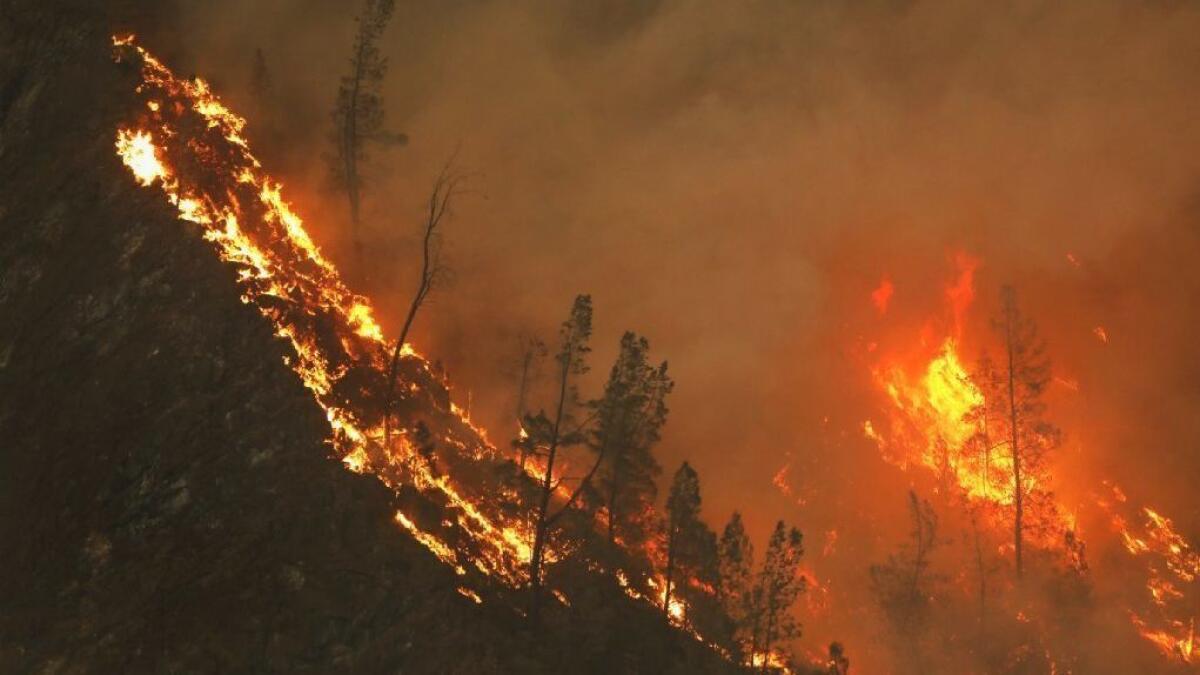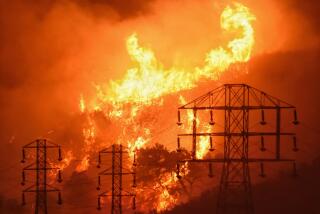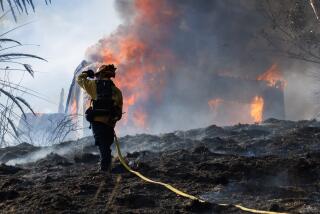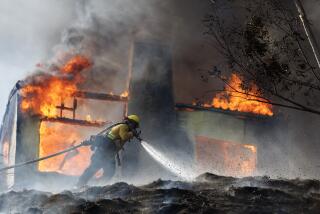California lawmakers grill top utilities regulator over wildfire prevention

Under intense questioning from state lawmakers, California’s top utilities regulator said the state is ill-equipped to deal with a new reality of destructive and deadly wildfires brought on by climate change.
“I don’t think we are prepared for, in any way here in the state of California, for the enormity that we’re seeing,” said Michael Picker, president of the California Public Utilities Commission. “We need more. We need more thinking. We need more ideas.”
Picker made the comments in testimony Wednesday during the agency’s annual oversight hearing in the state Assembly.
The commission, charged with enforcing electrical safety to prevent wildfires, is facing growing scrutiny after years of increasingly dangerous blazes that have been linked to power lines and utility equipment. After the Camp fire killed 86 people in Butte County in November, legislators implored Picker to explain efforts the agency has taken to ensure utilities are meeting safety guidelines to prevent wildfires before the onset of the 2019 wildfire season.
“I didn’t hear anything that gave me the comfort that there are plans that are going to make people safer,” said Assemblyman Jim Wood (D-Healdsburg), who attended the hearing.
The Times reported this week that a team of just 19 people at the CPUC performs preventive safety audits and spot checks to ensure vegetation is cut back a safe distance from lines before wildfires strike. Representatives from the agency said it had started a process Wednesday to eventually grow that number to 100, including contractors.
Still, Picker said the state would need at least 15,000 people to monitor the 250,000 miles of power lines and 4.2 million utility poles that deliver electricity to homes and businesses throughout the state. He argued that adding more staff won’t solve the problem and said the state needs to invest in better technology.
The Legislature spent months conducting hearings last year to craft and pass Senate Bill 901, wide-reaching legislation that included new plans the utilities must submit to prevent wildfires and addressed key issues such as forest management and legal liability. Picker pointed to the Camp fire to suggest the bill didn’t go far enough, while defending what some lawmakers consider a slow process at the CPUC to implement the legislation.
The agency’s structure limits its ability to move quickly, Picker said. By law, the CPUC must gather input on decisions from stakeholder groups in a process similar to a court system overseen by administrative law judges.
“If you want an agency that can move more quickly, maybe this is not the right kind of agency,” Picker said.
He offered little when lawmakers asked whether the state needed to create a new agency to be responsible for wildfire safety.
“These are choices that are tough to make,” Picker said. “We can’t make them. You have to do that.”
The hearing came as lawmakers continue to weigh new legislation to address wildfires, some of which would cost billions of dollars.
Assemblyman Jim Frazier (D-Oakley) introduced a bill this week to require utilities to move transmission lines out of highly fire-prone areas, bury the lines underground or improve the equipment to minimize risk.
Wood’s Assembly Bill 38 would require the state to review building standards in high-risk areas and allow property owners to access $1 billion in state-funded loans for projects to update buildings.
Twitter: @tarynluna
More to Read
Get the L.A. Times Politics newsletter
Deeply reported insights into legislation, politics and policy from Sacramento, Washington and beyond. In your inbox three times per week.
You may occasionally receive promotional content from the Los Angeles Times.











